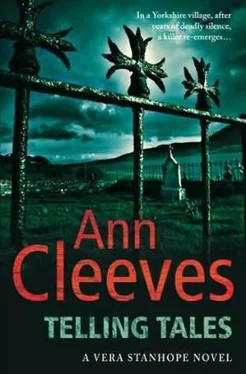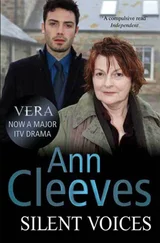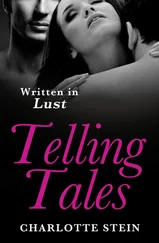Ann Cleeves - Telling Tales
Здесь есть возможность читать онлайн «Ann Cleeves - Telling Tales» весь текст электронной книги совершенно бесплатно (целиком полную версию без сокращений). В некоторых случаях можно слушать аудио, скачать через торрент в формате fb2 и присутствует краткое содержание. Жанр: Детектив, на английском языке. Описание произведения, (предисловие) а так же отзывы посетителей доступны на портале библиотеки ЛибКат.
- Название:Telling Tales
- Автор:
- Жанр:
- Год:неизвестен
- ISBN:нет данных
- Рейтинг книги:5 / 5. Голосов: 1
-
Избранное:Добавить в избранное
- Отзывы:
-
Ваша оценка:
- 100
- 1
- 2
- 3
- 4
- 5
Telling Tales: краткое содержание, описание и аннотация
Предлагаем к чтению аннотацию, описание, краткое содержание или предисловие (зависит от того, что написал сам автор книги «Telling Tales»). Если вы не нашли необходимую информацию о книге — напишите в комментариях, мы постараемся отыскать её.
Telling Tales — читать онлайн бесплатно полную книгу (весь текст) целиком
Ниже представлен текст книги, разбитый по страницам. Система сохранения места последней прочитанной страницы, позволяет с удобством читать онлайн бесплатно книгу «Telling Tales», без необходимости каждый раз заново искать на чём Вы остановились. Поставьте закладку, и сможете в любой момент перейти на страницу, на которой закончили чтение.
Интервал:
Закладка:
He reached for the wine bottle. She saw that his hand was shaking. “Do you know I’ve never had a girlfriend,” he said. “Not a real one. The occasional fumbled one-night stand. Usually when I’m drunk. Usually with a girl with red hair. But nothing more than that.”
For a moment Emma said nothing to him. She looked at him across the table, not sure what to make of it. Christopher had never spoken to her like this before. He had never spoken to her about anything important. She wasn’t even sure she believed him.
“I never realized,” she said in the end. “Why are you telling me now?”
“Because I had to talk to somebody. I think I’m going mad. I’m not sure what’s true any more.”
“It is crazy,” Emma said. “You have to let go.”
And did you?”
“What do you mean?”
, “You’re holding onto stuff. What is it? Guilt? You never liked Abigail much, did you? It must have been a shock but I doubt if you felt much grief.”
“She was my best friend.”
“No,” he said. “She was your only friend. All you had. And she never let you forget it, did she? She never let you forget how much you owed her.” He held her eyes for a moment. “I always thought,” he paused, ‘that deep down you hated her.”
“No,” she said, but the image she’d had a moment before, of Abigail pulling faces, of them laughing together, had already faded.
Chapter Fifteen
Emma left Chris sitting at the table, staring moodily into his wine glass. He had become silent and unresponsive, and when she said goodnight he seemed not to hear. She climbed the stairs slowly, not prepared to make more effort on her brother, but not yet ready for bed.
The day before, they’d moved Matthew into his own bedroom. James had prepared it when she was pregnant. A labour of love, because the colours she’d chosen hadn’t been to his taste at all. Under her instruction he’d painted the grubby wallpaper yellow and stuck up a frieze of waves and boats and fish. A mobile of silver stars hung from the ceiling. At the open door she paused to look in. The baby was lying on his back in his cot, his arms flung out, relaxed and floppy as a rag doll.
As she’d expected, James was already asleep. She stared down at him trying to recreate something of the excitement she’d felt when she’d touched him earlier, but it had quite gone. He didn’t stir when she moved around the room. She began to undress, but still felt too restless for sleep. The wooden floorboards were uncarpeted, stained and varnished and the feel of them on her bare feet always reminded her of PE lessons in the gym at school. One of the teachers had been keen on contemporary dance, and dressed in black leotards, they’d leapt and writhed around the hall to weird electronic music. Expressing themselves. Abigail had thought the exercise ridiculous and made her feelings clear. Emma had been torn. Secretly she’d enjoyed the freedom of the movement. It was like running across a beach towards the sea. The same exhilaration. But because of Abigail, she’d had to sneer too.
Chris had been right in one sense. After Abigail’s death, school had become more bearable. In the few weeks before the summer holidays and in the first half of the Christmas term she was known only as Abigail’s mate. Afterwards, she had become an object of interest in her own right; the pupils had been curious about the murder investigation, the teachers sympathetic. Under their attention she had flourished.
Was it that autumn term she’d discovered her facility for languages? It had been a piece of translation, German into English, and when it had come to her turn she’d rattled it off, understanding immediately what the writer had been trying to say.
“Very good, Emma,” the teacher had said automatically. Emma had come in for a lot of praise since Abigail’s death. As if that was some compensation for the shock of finding a strangled body. Then the teacher had repeated, meaning it, surprised. “Really, that was very good.”
So language had become her thing. French and German to A level and Spanish as an extra GCSE in the sixth form, then Russian for her degree. She hadn’t been brilliant. She’d just scraped a 2.1. But it had been more than her teachers would have predicted when she was fifteen. Her parents too had been surprised by her success, though they’d tried not to show it. How could she explain it? Well, it’s much easier to speak in other people’s voices. It’s more comfortable. How would they understand that?
That had led to her meeting James. After university she’d taken a job with a small shipping company based in Hull. Why had she come back? After being in Exeter for three years and Frankfurt for one, she’d thought herself free of the influence of Robert and Mary. She could have found work anywhere in the country, anywhere in the world. Yet, almost without making a conscious decision, she’d found herself back here. She had felt some responsibility for her mother of course. She couldn’t imagine what it could be like for Mary, with just the two of them rattling round that big house. Even now her parents’ marriage was a mystery to her. What was it about Robert which inspired such devotion? Not just from her mother but from all the women in the parish. But that hadn’t been the only reason for her return. She’d been scared all the time she’d been away. Of the strange places and the jostling cities and of people she didn’t know. Of the unexpected. Perhaps that had been the legacy of discovering Abigail’s body. She was terrified of stumbling across another horror. She knew she wouldn’t cope with it on her own. Here, her parents drove her to distraction, but they’d be there to support her, as they had the first time.
There’d been some translation work in the Hull office, but she’d felt her grasp of the languages slipping away through lack of use. When she’d been approached to teach an adult education class she’d taken it on reluctantly, just as a way of keeping Russian at least real in her mind. And at the first class James had walked in, straight from work, still in his uniform. Her dreams about him had been just as vivid as those about Dan Greenwood. Hadn’t they?
She moved across to the window, had to fight against the compulsion to relive her favourite day dream: Emma sees herself slipping out into the square and, keeping to the shadows, walking across to the forge. She pushes open one of the big doors which form an arch, like the door of a church, and steps inside. It would be so hard to let this go. But how could she continue now she knew there was no attraction, just an embarrassed recognition of a schoolgirl who had once been on the edge of one of his cases? She would miss those languid afternoons when she lost herself in daydreams, the nights when she looked out to see if he was there.
A light was on in the pottery and the door was not padlocked. Dan was working late. Emma supposed Vera Stanhope had demanded his time all day and he had to catch up. Or perhaps the night shifts with the police had given him a taste for working late. The light went off. Dan emerged from the pottery and stood for a moment, looking up and down the square. He locked the door and fixed the padlock, but still he stood where he was. Emma had a sudden and irrational certainty that he was waiting for her. She stared down at him, willing him to look up. But as there was no light in the bedroom how would he notice her? The orange street lamp would be reflected in the glass forming a barrier he’d not be able to see through. She considered pushing up the sash window as she had on the night when he and James had discussed Jeanie’s suicide, wondered if she could do it without waking her husband.
A car drove into the square. It was black and long. It pulled up smoothly besides Dan and he climbed in. Emma couldn’t see who was driving. She supposed it could be Vera Stanhope with more questions, though there had been something furtive about the way Dan looked all around him before getting in. Perhaps it was a woman, a lover he’d managed to keep secret from the rest of the village. The car revved its engine and drove off very fast. Emma climbed into bed and lay with her back to James.
Читать дальшеИнтервал:
Закладка:
Похожие книги на «Telling Tales»
Представляем Вашему вниманию похожие книги на «Telling Tales» списком для выбора. Мы отобрали схожую по названию и смыслу литературу в надежде предоставить читателям больше вариантов отыскать новые, интересные, ещё непрочитанные произведения.
Обсуждение, отзывы о книге «Telling Tales» и просто собственные мнения читателей. Оставьте ваши комментарии, напишите, что Вы думаете о произведении, его смысле или главных героях. Укажите что конкретно понравилось, а что нет, и почему Вы так считаете.












